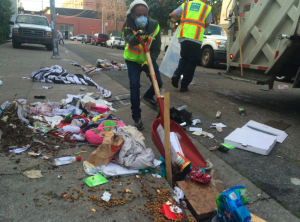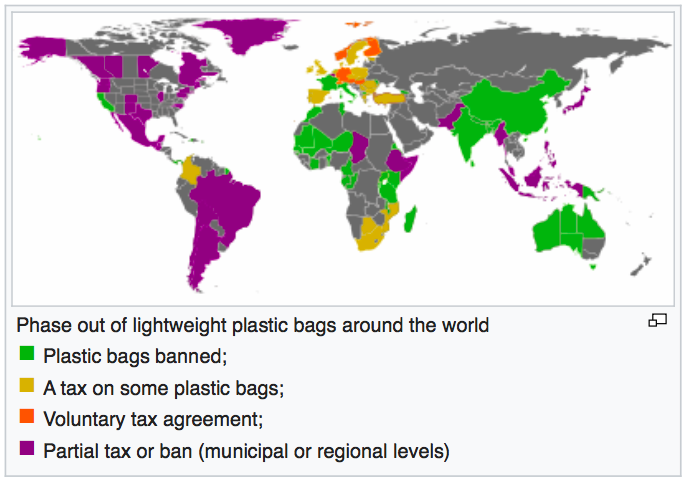IF PLASTIC BAGS HAVE FLAWS, TOTES HAVE DRAWBACKS TOO
The Anchorage Assembly is debating an issue that jurisdictions all over the world have already decided: Whether stores should be allowed to provide customers with “single use” plastic bags to carry out their purchases.
An observant Anchorage resident can be forgiven for predicting that the decision will favor a ban. After all, elections have consequences and the Anchorage Assembly has swung hard left. After all, if China can ban plastic bags, why can’t Anchorage?
A workshop for AO 2018-63 and 63(S) is planned for Aug. 10 at City Hall in Assembly Conference Room #155 from 12-1 p.m.
The presentation for the last workshop can be reviewed here.
A public hearing on the matter is also scheduled for the Aug. 14 Assembly meeting at the Loussac Library. Meetings generally start at 5 pm and public hearing portions at 6 pm.
CAN CONSERVATIVES SUPPORT A BAG BAN?
Wasilla and Palmer have banned these single-use bags because they have such a big problem with wind blowing them out of the landfill. Homer, a more liberal enclave, tried a ban on plastic bags, and then backed off, even though it is a coastal community sensitive to ocean pollution.
Viewpoints on a single-use plastic bag ban tend to cross political lines. Plenty of conservatives support a ban, because they support conservation. Most liberals do, as well. But not everyone thinks this is a front-burner issue for Anchorage, which is under siege by property and violent crime.
A review of the bag arguments:
The Libertarian says, this is the government meddling in the free market.
The environmentalist says, this is a commonsense and easily implemented step to reducing plastics in the environment — and we’re coming for your plastic straws and disposable diapers.
The political scientist says, decisions like these are best left to local governments. In Anchorage, the elected representatives on the Assembly approved the commercialization of pot sales, and will likely ban single-use plastic bags. These are equivalent actions and are typical decisions communities make that determine how they want to operate.
The contrarian says, there’s no evidence that these bag bans reduce the use of plastic significantly or help reduce landfill. Reusable plastic bags are often also made of synthetic fibers, and although they are durable, eventually they are thrown out.
But bans are popular these days, especially when it comes to plastic.
WHICH STATES HAVE BANNED PLASTIC BAGS?
The trend toward banishing single-use plastic bags started in San Francisco in 2007. Today on San Francisco streets, there may be no single-use plastic bags drifting around, but there are plenty of used plastic hypodermic needles, creating all sorts of hazards. They are not exactly recyclable either.
It’s a safety problem created because the city hands out clean needles to drug addicts. The addicts toss them and they litter the entire city now with a combination of plastic, toxins, and possibly disease.
The community of San Francisco made choices. While it pioneered the bag ban, the streets are increasingly covered in human feces and garbage and the city is losing tourism and conventions because of the filth. The city just didn’t manage to get its priorities straight.

In 2014, California became the first state to impose a statewide ban on single-use plastic bags at large retail stores. It was challenged by referendum, but Proposition 67 passed with 52 percent of the vote. The people of California have spoken, and they now carry their own bags with them to the store.
What happened next?
Retailers started complaining that the reusable bags that shoppers use have led to an increase in shoplifting by allowing criminals to walk off with goods that are easily concealed as they browse the aisles.
“I’ve noticed since the plastic bag ban, it’s made it a bit more challenging to spot someone who may be trying to steal some of these items,” said Long Beach Police Sgt. Robert Woods, as reported in local newspapers after the ban went into effect in California. Similar reports have been made in Portland and Seattle, with thousands of dollars worth of inventory “shrinkage” reported.
[Read: Seattle merchants notice spike in shoplifting after bag ban]
Hawaii bans non-biodegradable plastic bags at the checkout stands on the island counties of Kauai, Maui, and Hawaii. Honolulu enacted a ban as well, which makes it a defacto statewide ban. Paper bags must contain more than 40 percent recycled material.
The District of Columbia enacted legislation requiring all businesses that sell food or alcohol to charge 5 cents for paper or plastic bags.
WHAT ARE PLASTIC BAGS MADE OF?
The single-use bags provided in grocery stores are typically made of natural gas and petroleum in the form of polyethylene.
WHAT IS THE PROBLEM WITH THAT?
While hard plastics are increasingly recyclable in Alaska, plastic bags are not, nor are they degradable. They eventually break down into tiny bits of plastic and are ingested in the food chain, sometimes whole, sometimes in parts, but even before they break down into shreds, they spend decades in the environment, and can choke wildlife and clog the oceans.
One novel way these plastics in the food chain may be affecting humans is because the dioxin in them is an endocrine disruptor. Sometimes this is called a “gender-bender” pollutant. In nature, this is linked with reproductive confusion. No one knows if human gender confusion is linked to endocrine disruptors.
When Austin, Texas, enacted a ban, residents resorted to buying heavier-grade plastic bags, something that shoppers are now doing in Wasilla. Those heavier bags may be used a few times, but end up in the garbage too.
The Austin bag ban is no longer enforced because the Texas Supreme Court ruled that bag bans at the local level, such as the one that was contested in Laredo, are superceded by a state law covering solid waste.
In Alaska, more waste is likely generated from the bubble wrap, plastic wrap, and cardboard boxes that arrive from Amazon by the thousands of pounds each day, but these are harder targets for foes of plastic.
Yet the bag ban is somewhat of a “gateway” plastic ban, with more surely to follow: plastic straws and disposable diapers, for example.
Reps. Andy Josephson and Harriet Drummond introduced HB 264, a 20-cent tax on single-use plastic bags, but the measure died this year in House Rules Committee. It would have been the highest tax in the country on carry-out bags, four times that charged by the District of Columbia for paper or plastic.
For Alaskans who simply object to the bag ban on principle (Alex Gimarc wrote on it as “virtue signaling” here), or who actually reuse them as garbage bags (as this writer does) you can order your own at Amazon.com, 900 count for $18.48, and with Prime, there’s no delivery charge.
